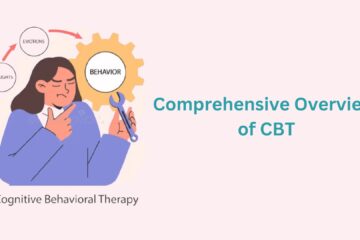Self-management is a crucial aspect of personal development, as it empowers individuals to take control of their lives and make informed decisions. To effectively enhance self-management skills, there are five key abilities that should be honed. Firstly, time management allows individuals to prioritize tasks and allocate their time efficiently. Secondly, goal setting enables individuals to set clear objectives and work towards achieving them. Thirdly, self-discipline helps individuals develop a strong work ethic and maintain focus. Fourthly, stress management techniques equip individuals with strategies to handle pressure effectively. Lastly, self-reflection promotes self-awareness and personal growth.
5 Important Skills to Improve Self-Management
Time Management:
Time management is a crucial skill that can greatly improve self-management. It involves effectively organizing and prioritizing tasks to make the most efficient use of your time. One way to improve time management is by creating a schedule or to-do list. By planning out your day or week in advance, you can allocate specific time slots for different tasks, ensuring that nothing is overlooked or forgotten.
Another important aspect of time management is setting realistic goals and deadlines. It is essential to understand your capabilities and limitations, and to avoid overcommitting yourself. By setting achievable goals and deadlines, you can avoid unnecessary stress and pressure, and ensure that you have enough time to complete your tasks thoroughly and efficiently.
Self-Motivation:
Self-motivation is a skill that enables you to stay focused and driven towards achieving your goals, even when faced with obstacles or setbacks. To improve self-motivation, it is essential to have a clear understanding of your goals and the reasons behind them. By identifying your motivations, whether they are personal or professional, you can better connect with your aspirations and stay motivated to work towards them.
Another effective way to enhance self-motivation is by breaking down your goals into smaller, manageable tasks. By doing so, you can experience a sense of accomplishment as you complete each task, which can further fuel your motivation. Additionally, it is important to celebrate your achievements along the way, as this can provide a boost of motivation and reinforce your commitment to self-management.
Stress Reduction Techniques:
Stress is a common aspect of daily life, and learning stress reduction techniques can greatly improve self-management. One effective technique is practicing relaxation exercises, such as deep breathing or meditation. These techniques can help calm your mind and body, reducing the impact of stress on your overall well-being.
Another technique to reduce stress is to identify and address the sources of stress in your life. By recognizing what triggers stress for you, whether it’s work-related or personal, you can take steps to manage or eliminate those stressors. This may involve setting boundaries, prioritizing self-care, and seeking support from friends, family, or professionals.
Decision-Making Skills:
Having strong decision-making skills is crucial for effective self-management. Decision-making involves assessing various options, considering the potential outcomes, and making choices that align with your goals and values. To improve decision-making skills, it is important to gather relevant information and evaluate it critically. This can include seeking advice from trusted individuals or conducting thorough research.
Additionally, it is essential to consider the potential consequences of each decision. By weighing the pros and cons, you can make informed choices that are in line with your long-term objectives. It is also important to trust your instincts and be confident in your decision-making abilities.
Adaptability:
Adaptability is the ability to adjust and thrive in changing circumstances. In today’s fast-paced world, being adaptable is a valuable skill that can greatly improve self-management. To enhance adaptability, it is important to embrace change and view it as an opportunity for growth and learning.
One way to cultivate adaptability is by being open-minded and willing to consider alternative perspectives. This can help you adapt to new situations and find creative solutions to challenges. Additionally, it is important to remain flexible and resilient in the face of unexpected circumstances. By being adaptable, you can better navigate through life’s uncertainties and manage your personal and professional responsibilities effectively.
Importance of Self-Management in Your Life
1. Personal Growth and Development
Self-management is crucial for personal growth and development. It involves taking responsibility for one’s actions, setting goals, and making conscious choices. By practicing self-management, individuals can enhance their skills, knowledge, and abilities, leading to continuous personal improvement.
2. Time Management
Effective time management is a key aspect of self-management. It involves prioritizing tasks, setting deadlines, and efficiently utilizing available time. By managing time effectively, individuals can accomplish more, reduce stress, and maintain a healthy work-life balance.
3. Productivity and Efficiency
Self-management plays a vital role in enhancing productivity and efficiency. When individuals effectively manage their time, energy, and resources, they can focus on important tasks, eliminate distractions, and achieve better results. By being organized and disciplined, individuals can optimize their performance in various aspects of life.
4. Emotional Well-being and Stress Reduction
Self-management helps in maintaining emotional well-being and reducing stress. By being aware of one’s emotions, managing stressors, and practicing self-care, individuals can improve their mental and emotional health. Self-management techniques such as mindfulness, relaxation exercises, and healthy coping mechanisms can contribute to overall well-being.
5. Goal Setting and Achievement
Self-management enables individuals to set meaningful goals and work towards their achievement. By identifying long-term objectives and breaking them into smaller, manageable tasks, individuals can stay motivated and focused. Self-management also involves tracking progress, adapting strategies, and celebrating achievements, which boosts confidence and self-esteem.
6. Decision Making and Problem Solving
Effective self-management enhances decision-making and problem-solving abilities. By being proactive, gathering information, analyzing options, and considering consequences, individuals can make informed decisions. Self-management also involves being adaptable and resilient, enabling individuals to overcome challenges and find creative solutions.
7. Personal Accountability and Responsibility
Self-management fosters personal accountability and responsibility. It involves taking ownership of one’s actions, acknowledging mistakes, and learning from them. By cultivating a sense of responsibility, individuals become more reliable, trustworthy, and dependable, both in personal and professional relationships.
8. Adaptability and Flexibility
Self-management helps individuals become more adaptable and flexible in various situations. By developing skills such as adaptability, resilience, and flexibility, individuals can navigate through changes, challenges, and uncertainties more effectively. This quality is particularly valuable in today’s rapidly changing world.
In summary, self-management is essential for personal growth, time management, productivity, emotional well-being, goal achievement, decision-making, accountability, and adaptability. By practicing self-management, individuals can lead more fulfilling, successful, and balanced lives.
Smart Decision Skills for Self-Management
1. Setting Clear Goals:
One of the key smart decision skills for self-management is the ability to set clear and achievable goals. This involves identifying what you want to accomplish and breaking it down into smaller, actionable steps. By setting clear goals, you can stay focused and motivated, making it easier to manage your time and resources effectively.
2. Prioritizing Tasks:
Prioritizing tasks is crucial for self-management as it helps you determine what needs to be done first and what can be postponed. By evaluating the importance and urgency of each task, you can allocate your time and energy efficiently. This skill allows you to avoid feeling overwhelmed and ensures that you accomplish the most important tasks within the available time frame.
3. Time Management:
Effective time management is essential for self-management. It involves planning and organizing your time in a way that maximizes productivity and minimizes wasted time. This skill includes setting deadlines, creating schedules, and avoiding procrastination. By mastering time management, you can make the most out of your day and achieve your goals more efficiently.
4. Decision-Making:
Being able to make smart decisions is a crucial skill for self-management. Decision-making involves assessing different options, considering the potential consequences, and choosing the best course of action. By developing this skill, you can avoid impulsive decisions, make informed choices, and take responsibility for the outcomes of your decisions.
5. Emotional Intelligence:
Emotional intelligence plays a significant role in self-management. It involves recognizing and understanding your own emotions as well as the emotions of others. By developing emotional intelligence, you can effectively manage your own emotions, handle stress, and maintain positive relationships. This skill enables you to make rational decisions based on your emotions and effectively manage conflicts.
6. Self-Discipline:
Self-discipline is a fundamental skill for self-management. It involves the ability to control your impulses, stay focused, and persevere in the face of challenges. By developing self-discipline, you can avoid distractions, maintain consistency, and make progress towards your goals. This skill helps you overcome procrastination, develop good habits, and achieve long-term success.
7. Problem-Solving:
Problem-solving is an essential skill for self-management as it allows you to identify and overcome obstacles. It involves analyzing problems, generating potential solutions, and implementing the most effective one. By developing problem-solving skills, you can navigate through challenges, adapt to changing circumstances, and find creative solutions to complex issues.
8. Self-Reflection:
Self-reflection is a valuable skill for self-management as it allows you to assess your own actions and behaviors. It involves critically examining your strengths, weaknesses, and areas for improvement. By practicing self-reflection, you can learn from your experiences, adapt your strategies, and continuously grow. This skill helps you make more informed decisions and enhance your self-awareness.
In conclusion, smart decision skills for self-management involve setting clear goals, prioritizing tasks, managing time effectively, making informed decisions, developing emotional intelligence, practicing self-discipline, solving problems, and engaging in self-reflection. By mastering these skills, you can enhance your self-management abilities and achieve personal and professional success.
Conclusion
In conclusion, self-management is a crucial skill that can greatly impact our personal and professional lives. The ability to prioritize tasks, set goals, manage time effectively, communicate assertively, and cope with stress are all essential elements of self-management. By actively working on these skills, we can improve our productivity, reduce stress levels, and ultimately achieve greater success in various areas of life. With practice and commitment, anyone can develop and enhance their self-management abilities, leading to a more balanced and fulfilling life.
Frequently Asked Questions
1. What is self-management and why is it important?
Self-management refers to the ability to take control of one’s own actions, emotions, and behaviors in order to achieve personal and professional goals. It is important because it helps individuals become more organized, productive, and in control of their lives.
2. How do these skills help in improving self-management?
The five skills mentioned in the article (goal-setting, time management, stress management, self-motivation, and decision-making) directly contribute to improving self-management. They provide individuals with the tools and strategies to effectively manage their time, set and achieve goals, handle stress, stay motivated, and make informed decisions.
3. How can goal-setting improve self-management?
Goal-setting helps individuals prioritize their tasks and focus their efforts on what is most important. By setting clear and achievable goals, individuals can better manage their time and resources, stay motivated, and track their progress towards their objectives.
4. What are some effective time management techniques?
Some effective time management techniques include creating a to-do list, prioritizing tasks based on importance and urgency, breaking down large tasks into smaller, manageable ones, utilizing time-blocking or scheduling, minimizing distractions, and delegating tasks when possible.
5. How does stress management contribute to self-management?
Stress management techniques, such as mindfulness, deep breathing exercises, regular exercise, and seeking support from others, help individuals cope with and reduce stress levels. By effectively managing stress, individuals can maintain focus, make better decisions, and improve overall self-management.
6. How can self-motivation impact self-management?
Self-motivation plays a crucial role in self-management as it helps individuals stay focused, determined, and committed to their goals. By cultivating self-motivation through positive self-talk, setting rewards for achieving milestones, and staying inspired, individuals can better manage their time and efforts towards achieving their objectives.
7. How does decision-making contribute to self-management?
Effective decision-making is an essential skill for self-management as it helps individuals make informed choices, prioritize tasks, and allocate resources appropriately. By considering various options, gathering relevant information, and weighing the pros and cons, individuals can make decisions that align with their goals and improve overall self-management.
8. Can these skills be learned and improved?
Yes, all of the skills mentioned in the article can be learned and improved with practice and dedication. Like any other skill, self-management skills can be developed by implementing strategies, seeking guidance from mentors or coaches, and consistently applying the techniques discussed in the article.




